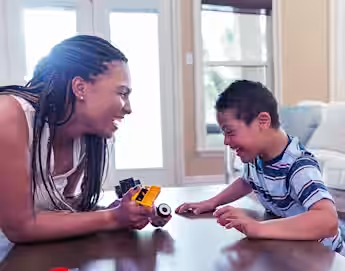We have worked hard with our case managers to provide as much online support to our clients as possible so they, at the very least, know that we are still here to help however we can.
It's very distressing to see that a survey of more than 4,000 parents by the Disabled Children's Partnership reported that vital care and support had stopped in 76 per cent of cases, with 86 per cent of parents saying they had seen a negative impact on their child's learning and communication. Some have seen vital treatments such as physiotherapy completely disappear for more than three months.
Despite the Government including children with an EHCP (education, health and care plan) as vulnerable and therefore able to continue going to school during lockdown, many special schools have had to close because they found it impossible to maintain social distancing or teachers were not able to work. The Times reports that only one in four pupils with an EHCP were attending school at the start of July.
The importance of regular contact with teachers and therapists, friends and classmates for disabled children cannot be underestimated. A regular timetable, social contact and staff working hard to improve their speech, language, physical coordination and learning is vital to keep children moving forward and to achieve their potential. The dispair for parents when this is taken aware is unimaginable, not least since it provides them with desperately needed respite from brutal, often 24-hour care regimes. Many report feeling isolated, stranded and understandably very worried about their children's mental and physical health.
The spotlight remains on the Government and local authorities to ensure that all children can return to school safely in September. Getting children with special needs and disabilities back to school is an absolute priority.

